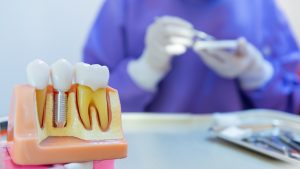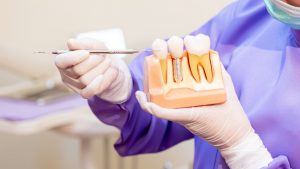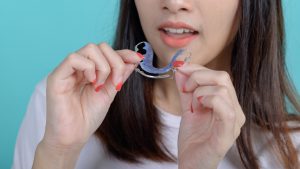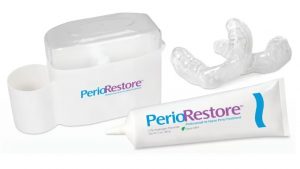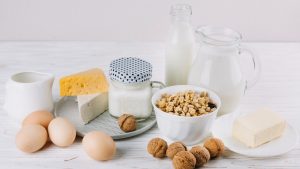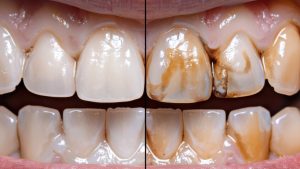Taking care of your teeth during orthodontic treatment is crucial for achieving the best results with braces. Braces move your teeth into better alignment, but they need extra care to work effectively. Along with brushing and flossing, what you eat also matters.
Certain foods can damage your braces, causing discomfort or delaying your progress. In this article, we’ll guide you through the types of foods to avoid with braces during your orthodontic journey. By making mindful choices, you’ll help your braces do their job and keep your smile healthy.
Why You Need Dietary Restrictions During Orthodontic Treatment
Braces work by applying gentle, consistent pressure to your teeth, gradually moving them into better alignment. Over time, this pressure reshapes the bone and positions your teeth where they should be. The process takes time and patience.
Your diet plays a crucial role in this process. Certain foods can damage your braces, causing discomfort or slowing down your progress. Hard foods can break or loosen brackets, while sticky ones can get caught in the wires, making cleaning difficult. Sugary foods can also contribute to plaque buildup, increasing the risk of cavities.
By sticking to dietary restrictions, you help protect the braces’ components—such as the brackets and wires—and maintain the pressure needed for proper tooth movement. Avoiding problematic foods ensures your treatment moves forward smoothly, leading to faster and more effective results.
If you’re looking for a more flexible option, treatments like Invisalign may offer an alternative to traditional braces. However, whether you’re using traditional braces or Invisalign, maintaining proper dietary habits is key to ensuring the treatment works efficiently.
Hard Foods
Hard foods can pose a serious risk to your braces. These foods, like nuts, hard candies, ice, raw carrots, apples, corn on the cob, pretzels, and hard granola bars, can easily break or dislodge the brackets and wires. Even biting down on something too hard can cause pain or discomfort, especially if the braces are still adjusting to the pressure.
To prevent damage, it’s best to avoid hard foods altogether or cut them into smaller, manageable pieces. For example, opt for steamed vegetables instead of raw carrots, or choose pre-cut apples that are easier to chew. This helps protect your braces and ensures your treatment continues smoothly.
Sticky and Chewy Foods
Sticky and chewy foods can be especially problematic for braces. Candies like caramel, taffy, chewy granola bars, gummy bears, toffee, and licorice can easily stick to the brackets and wires. This makes it difficult to clean your braces properly and can lead to plaque buildup. The sticky residues left behind also increase the risk of tooth decay and cavities, which can delay your progress.
To avoid these issues, it’s best to steer clear of sticky treats altogether. Instead, enjoy chocolate or fruits that don’t stick to your braces. These alternatives are easier to clean off and won’t interfere with your treatment. Keeping your braces clean and free of sticky residue is essential for a healthy and smooth orthodontic experience.
Sugary Foods and Drinks
Sugary foods and drinks can wreak havoc on your braces and overall oral health. Sodas, sugary candies, sports drinks, and snacks like pastries and cookies are loaded with sugar, which feeds harmful bacteria in your mouth. This leads to plaque buildup, which can cause cavities and gum issues, especially around the brackets and wires.
Additionally, acidic drinks like soda and fruit juices can weaken the enamel on your teeth, making them more vulnerable to decay. When combined with braces, these effects are intensified, as it’s harder to clean around the brackets.
To protect your teeth and braces, it’s best to limit sugary snacks and drinks. Instead, opt for healthier alternatives like water, milk, or unsweetened beverages. Staying hydrated with water also helps wash away food particles and keeps your mouth fresh throughout the day.
Tough or Fibrous Foods
Tough or fibrous foods, such as steak, tough meats, tough bread, celery, and fibrous vegetables, can pose a challenge for braces. These foods can pull on the brackets and wires, potentially dislodging or loosening them. Additionally, fibrous foods can get stuck between the brackets and wires, making it difficult to clean your braces properly and causing discomfort.
To prevent any issues, it’s important to modify how you eat these foods. Cut meat into small, bite-sized pieces to make it easier to chew. For fibrous vegetables like celery, cook them until they are soft and easy to eat. By taking these precautions, you can avoid unnecessary strain on your braces and ensure that your treatment stays on track.
Foods That Can Stain Teeth and Braces
Certain foods and drinks are known for their ability to stain both your teeth and your braces. Coffee, tea, red wine, berries, tomato sauce, and curry are all examples of foods that can leave noticeable stains, especially on clear brackets and wires. This not only affects the appearance of your braces but can also leave discoloration on your teeth if they are not properly cleaned.
To maintain the aesthetic of your braces and your smile, it’s a good idea to limit the consumption of stain-causing foods. If you do indulge, make sure to brush your teeth thoroughly afterward to prevent stains from settling in. Keeping up with regular oral hygiene will help ensure that your braces remain clean and your teeth stay bright throughout your treatment.
Acidic Foods
Acidic foods, such as citrus fruits (oranges, lemons, grapefruits), vinegar, pickles, and tomatoes, can be harsh on both your teeth and braces. The acidity can wear down the enamel on your teeth, making them more vulnerable to decay and sensitivity. Additionally, these foods can irritate your gums, especially when your braces are newly placed, causing discomfort.
To protect your teeth and gums, it’s best to consume acidic foods in moderation. After eating acidic foods, rinse your mouth with water to help neutralize the acid and prevent enamel damage. Avoid biting directly into acidic fruits like oranges or lemons, as the pressure can cause discomfort and may harm your braces.
Hard Liquids and Foods
Hard liquids and foods, such as ice cubes, frozen fruits, and hard frozen drinks, can cause significant problems for your braces. Chewing ice is a common culprit, often leading to broken brackets or bent wires. Frozen fruits, if too hard, can create unnecessary pressure on the braces, potentially causing discomfort or damage.
To avoid these issues, it’s important to avoid chewing ice altogether. If you do enjoy frozen fruits, make sure they are softened first or cut into small, manageable pieces. This will make them easier to eat without putting strain on your braces.
Conclusion
Caring for your braces involves both proper brushing and making smart food choices. By following these dietary guidelines, you can keep your treatment on track and protect your braces. With a bit of effort, you will achieve a healthier and more confident smile in no time.



